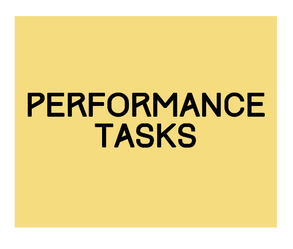|
The most valid and reliable indicator of our instructional expertise is the amount of growth our students make in acquiring reading, writing, computation, and analytical skills and behaviors during the 9 months of instruction they receive while in our school system. The tests included here are considered 'formative' in purpose and are in addition to the required CMAS (Colorado Measures of Academic Success) assessments.. |
Galileo |
Galileo Assessment is a district Local assessment that is used to measure growth and achievement over grade and content level standards being taught. This assessment is administered quarterly, and provides immediate data on student performance that teachers can use to drive instructional decisions. This is in contrast to state assessments that provide results after students have been promoted to the next grade level.
Growth and Achievement data is Norm referenced by being measured against students from throughout Colorado that are also taking both the Galileo and CMAS assessments. As a formative assessment Galileo Test results correlate with Colorado State Standards and CMAS state assessments. Our target of having of students meet/exceed expected growth goals, or perform at grade level on the Galileo math, reading and science tests that match state averages in those subjects will lead us to district wide proficiency on the state tests. Middle School: Math & Science High School: Reading High School: Writing High School: Math The elementary data below represents the percentage of students who have scored at grade level for the fall pre assessment and spring post assessment. Growth targets have also been set to achieve 1 ½ years growth in ELA and Math to help students catch up to their state level peers. The average growth for each grade level when comparing the fall pre assessment and spring post assessment is shared as well. Click here for ALL Elementary data |
iStation & I-Ready |
The i-Station and i-Ready assessments are adaptive computer based assessments that are used to benchmark and progress monitor reading and math. These assessment tools provide teachers with an overall score, scores in various sub-skills, and tier levels.
The i-Station assessments are given monthly to monitor students progress over time and provide teachers with ongoing data and instructional resources to assist them. The READ Act sets the expecation that 80% of the students will either be at grade level (tier 1) or have moved up a tier when comparing fall and spring assessments. I-Ready Math bechmark assessments are given in the beginning, middle, and end of the school year. In addition to the benchmarks, students are given a progress check once a month. Our goal is to push students to make "stretch" growth to help close the achievement gap. {Click here for all elementary data} |
CMAS |
This statewide assessment is used to compare student academic performance between all Colorado public schools. Below are the School Performance Frameworks from CDE:
Bill Metz Elementary SPF Monte Vista High School SPF Bill Metz Elementary Growth Report Byron Syring Delta Center SPF Monte Vista Middle School SPF Monte Vista Online Academy SPF Monte Vista Middle School Growth Report Monte Vista School District DPF |
TS Gold - Kindergarten |
A research based developmentally-appropriate, authentic tool used and valued in Monte Vista is the state’s approved School Readiness Assessment TS GOLD. In use for more than a decade our five kindergarten classes were part of the first pilot of 15 classrooms statewide. This standardized observation/documentation based assessment provides us information to make informed instructional decisions for individual students, identify specific areas of need and describe elements of growth and development for parents. [Click here for data link].
|
PSAT SAT |
SAT data is not shown, as results will be released later in May of 2017. However, ACT data indicates we are below state average, but scores remain consistent over the last five years.
PSAT data shows a percentage of students that are college ready in English and Math. Also shown is scores achieved in Math, English from the Monte Vista High School's 10th grade class. [Click here for data]. Data reports focus on the following scores. Total Score is equal to the Sum of the two section scores (320-1520). College Readiness: Evidence-Based Reading & Writing, and Math. The purpose of the Preliminary SAT® National Merit Scholarship Qualifying Test (PSAT) provides practice for the SAT Reasoning Test. It measures critical reading skills, math problem-solving skills, and writing skills. |

